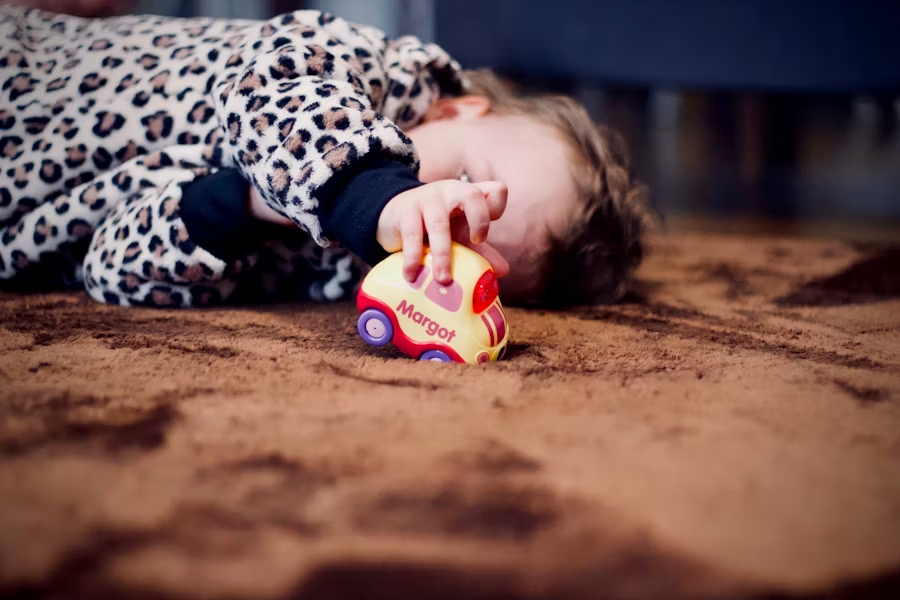I have worked as a home health aide long enough to know that most days follow a familiar rhythm. You drive from one address to another, carry your little clipboard of notes, and step into other people’s lives just long enough to help them shower, eat, walk, or simply feel less alone for a few hours.
That morning started exactly like that.
My schedule said “new case” in the 9 a.m. slot. No name, just a brief description from the agency:
Infant care, temporary emergency placement. Address attached. On call until further notice.
I was used to elderly clients, people recovering from surgery, or adults with chronic conditions. Babies were rare, but not unheard of. Emergencies happen. Families scramble. Agencies step in.
I plugged the address into my GPS, grabbed my tote bag with a stethoscope rattling around inside, and headed across town. The neighborhood was quiet, rows of small houses with patchy lawns, plastic toys faded from the sun, and cars that had seen better days. Nothing about the place screamed “emergency,” but that’s the thing about our work. The real crises rarely look dramatic from the outside.
I walked up to the house, checked the number twice, and rang the bell.

The door opened almost immediately.
A woman stood there, maybe early twenties, hair pulled into a messy bun, dark circles under her eyes. She did not introduce herself. She did not ask to see my ID. She did not smile.
She simply shifted her weight, picked up a chubby baby boy from a car seat by the doorway, and placed him carefully in my arms.
“This is Lenny,” she said. “You’re on call until further notice.”
Her voice was flat, but not unkind. She thrust a diaper bag toward me with one hand and a clipboard with the other, as if we had rehearsed this a hundred times.
I glanced down at the baby. Round cheeks, soft curls, and the brightest grin I had ever seen. He grabbed the collar of my scrub top like he had been doing it his whole life.
“Okay,” I said, because that is what you say when you are trained to stay calm. “Any allergies? Medications? Feeding schedule?”
She shook her head quickly. “Just formula. It’s all in the bag.”
Then she did something that made my stomach flutter. She stepped backward, still holding the door, but her eyes were already somewhere else, as if she was halfway gone before her body followed.
“Thank you,” she said.
Not “please take care of him” or “I’ll be back at five.”
Just “Thank you.”
And then she closed the door.
I stood on the small porch with a baby in my arms, a diaper bag cutting into my shoulder, and a quiet street stretching out on either side.
It was not the strangest situation I had ever been in on the job, but it was close.
Emergency placements can be messy. Sometimes the paperwork lags behind the reality. I told myself that this was just one of those days.
Lenny stared up at me like the universe had just made perfect sense.
“Well,” I whispered, “nice to meet you, little man.”
His whole face lit up.
A Selfie, a Phone Call, and a Question No One Expected
By noon, we had fallen into a temporary rhythm. I drove back to my apartment between visits like I always do, turned on some gentle music, and spread a blanket on the floor. Lenny kicked his feet, laughed whenever I blew raspberries on his belly, and held onto my finger with a grip so fierce it made my chest ache.
Infant care wasn’t exactly my specialty, but I knew the basics. Warm bottle, frequent burping, diaper checks, and an endless supply of silly voices.
Around lunchtime, I buckled him into my car seat to help him nap while I drove across town to see another client. He had other plans. He babbled the whole way, pointing at every truck and tree like he was giving a tour of the world he had just joined.
As I parked outside my client’s building, I remembered I needed proof-of-care for the new assignment. It was standard procedure to send a quick photo to the supervisor, just to document that you had made contact and the client was safe.
So I snapped a selfie.
One arm stretched out, my face in half-shadow, messy hair barely tamed by a clip, and Lenny tucked into the crook of my other arm, grinning like we were old friends.
I hit send and slipped the phone back into my pocket.
Thirty seconds later, it rang.
I answered on the first vibration. “Hey, it’s me. I’m at the new placement now. Just sent—”
My supervisor’s voice cut me off. “Where exactly did you get that baby?”
I frowned. “What do you mean where? The address is on the sheet. I’m at 612 Maple. Emergency infant placement. The caregiver handed—”

“That placement was canceled yesterday,” she said, her voice suddenly very quiet. “The child was never dropped off. The caregiver called and backed out. We haven’t reassigned it yet.”
My mouth went dry. “What?”
“You heard me,” she said. “We don’t have anyone authorized at that address today. No infant care on schedule. If you’re with a child, I need to know exactly how he got there.”
I lifted my eyes to the rearview mirror. Lenny was watching me, thumb halfway in his mouth, as if waiting to see whether I would laugh or cry.
“Then who gave him to me?” I whispered.
There was a long pause on the line.
“Stay where you are,” my supervisor said finally. “I’m making some calls.”
My hands shook as I unbuckled Lenny’s straps and pulled him into my lap, pressing his warm body against my chest like that alone could anchor both of us.
He didn’t seem afraid. He patted my cheek and laughed. To him, I was already just another caregiver, another pair of arms that felt steady.
I tried to breathe, to slow my thoughts down enough to make sense of anything. That was when I remembered the diaper bag.
I opened it, looking for anything official—an insurance card, a sheet of instructions, a note.
There, tucked behind a pack of wipes, folded in half, was a single piece of paper.
My name was on it.
Not my last name. Not “To whom it may concern.”
Just my first name, written quickly, the letters leaning into each other like they were in a hurry.
I knew, before I even opened it, that my life was about to split into “before” and “after.”
The Note That Changed Everything
My supervisor stayed on speakerphone as I unfolded the paper. My hands were shaking so hard that the edges rattled.
“Is everything okay?” she asked.
“There’s a note,” I said. “It has my name on it.”
“What does it say?”
I took a deep breath and read it out loud.
You’re the only one I can trust. Please keep him safe for now. I’ll explain everything soon.
No signature. No return number. No date. Just those lines and a sense of urgency that seemed to vibrate off the page.
My supervisor did not speak for several seconds.
“Who even knew I was working today?” I asked, more to myself than to her. “Who knew I’d be at that address at that exact time?”
“That is what we need to find out,” she replied. “First thing, I’m confirming that address with the property owner. I’ll call you back. Don’t go inside. Don’t talk to anyone at that house. Stay in your car.”
“Okay.”
“And keep that note safe.”
I set the paper down carefully in the center console, as if it were made of glass. Lenny fussed a little, so I warmed a bottle from the bag and held it for him, the phone balanced between my shoulder and ear.
He drank happily, his tiny hand resting on my wrist. The normalcy of it was almost jarring. It is a strange thing, to sit in a parked car on a quiet street, feeding a baby who had apparently appeared in your arms out of nowhere, with a note that implied someone had known you well enough to choose you on purpose.

Fifteen minutes later, my phone rang again.
“The property owner for that address just called me back,” my supervisor said. “She says the house is vacant. No tenants. No active lease. She’s been trying to get it listed again.”
“That’s not possible,” I said. “There was a woman there. She opened the door like she was expecting me. She said his name, handed me his bag, gave me the clipboard.”
“Well, she wasn’t authorized,” my supervisor replied. “Whoever she was, she was not supposed to be there. I’m contacting the police. I need you to drive back to the house but do not go inside. Park nearby and wait until officers arrive. Understood?”
My heart pounded in my throat. “Understood.”
I hung up and started the car. As I pulled away from the curb, I glanced at the note again, the ink still fresh enough that the letters looked almost wet.
You’re the only one I can trust.
I did not know whether to feel honored or terrified.
A Vacant House and a Vanishing Act
When I pulled back onto Maple, the house looked the same as before—but this time, everything felt wrong.
The curtains were closed. The blinds that had been slightly tilted earlier were now completely shut. The porch light, which had been on for no apparent reason in the middle of the day, was off. There was no car in the driveway. No sounds. No movement.
I parked across the street and waited until a patrol car rolled up behind me. Two officers approached my window. I handed them the note, told them the timeline, described the woman as best I could: early twenties, brown hair, tired eyes, nothing distinctive enough to draw on a sketch.
One of the officers glanced at Lenny, who was asleep now, his mouth slightly open.
“What’s his last name?” he asked.
“I don’t know,” I admitted. “She only called him Lenny.”
They exchanged a look.
“Stay here while we check the house,” the other one said.
They walked up the path, knocked, called out, and then, after a few minutes, entered with the owner’s permission. I sat in the car gripping the steering wheel, staring at the front door like it might suddenly spit out answers.
When they came back, their faces told me everything.
“Empty?” I asked.
“Completely,” one of them replied. “No furniture. No crib. No clothes. Nothing. Dust outlines on the floor where something used to be, but it’s gone now. If someone was living here, they cleared out fast.”
The other one held up the clipboard the woman had handed me that morning. “This was the only thing inside. Blank pages. No identifying information.”
They opened an official report. They collected my statement, took photos of the note, recorded the details of my assignment sheet from the agency.
“Shouldn’t there be some kind of alert?” I asked. “An Amber Alert? A missing child report?”
“We checked,” one officer said. “Nothing in the system matching an infant with that description in this county or the surrounding ones. No recent missing persons report for a young mother matching what you described either. It’s like he doesn’t exist on paper.”
That sentence lingered in the air like smoke.
“So what happens to him now?” I asked, my throat tight.
“For now,” the officer answered, “he stays with you. You’re licensed for home care, your agency is cooperating, and we have nowhere else to place him until we know who he belongs to.”
I looked back at Lenny, sleeping peacefully, cheeks flushed, lashes dark against his skin.
“He belongs somewhere,” I whispered. “Someone carried him for nine months. Someone named him.”

“We’ll keep investigating,” the officer said. “In the meantime, just take care of him.”
As I drove away from Maple for the second time that day, I felt the weight of responsibility settle over me in a way my job had never quite demanded before. This was not a scheduled client with a chart and a care plan. This was a child handed to me with a note and a plea.
And no one else was stepping forward to claim him.
When “Temporary” Starts to Feel Like Forever
The first night with Lenny did not go the way the baby manuals promise, but it was not terrible either. I set up a pack-and-play next to my bed, lined it with a freshly washed fitted sheet, and carefully lowered him into it. He blinked up at the ceiling fan with fascination, waved his arms, and kicked his legs like he was testing the air.
“You are safe,” I told him, more for myself than for him. “Whatever happened before, you are safe now.”
He woke once around two in the morning. He did not cry, just made soft sounds, like he was carrying on a conversation with the dark. I changed his diaper, warmed another bottle, and sat on the edge of my bed while he drank, his eyes locked on mine in that unnerving way only babies manage. Halfway through, he let go of the bottle with one hand and reached out for my finger.
I let him hold it until he fell asleep.
“Don’t get attached,” I reminded myself. “This is temporary. A week. Two at most. Someone will come forward. Some file will show up.”
The week ended.
No one came.
The police stayed in touch, but every update sounded the same. “We’re still looking into it. No missing child report has been filed. The email on the note led nowhere. We’re checking shelters and hospitals.”
Two weeks stretched into four. Four turned into six.
During those weeks, Lenny did not feel like a guest in my home. He felt like the center of it. My apartment reoriented around him. The corner where my yoga mat used to sit became a play area. The cabinet under the sink that once held cleaning supplies now hid packs of diapers and formula. My phone filled with photos of him, not because I needed to send proof to my supervisor, but because I wanted to remember every grin, every sleepy expression, every new sound.
Everywhere we went, the world decided I was his mother.
At the grocery store, the cashier leaned over the conveyor belt, smiled at his chubby cheeks, and said, “He has your eyes.”
At the park, a woman about my age pushed her stroller over and asked, “How old is he? They grow so fast, don’t they?”
My next-door neighbor waved from her front porch one afternoon and called, “Single mom life, huh? You’re doing great.”
At first, I corrected people.
“Oh, he’s not mine, actually. I’m just caring for him temporarily.”
But over time, the words felt clumsy. They never seemed to fit.
The truth is, by the end of the second month, Lenny did not feel temporary at all.
He was the first face I saw in the morning and the last I checked at night. He had favorite songs, favorite toys, a favorite spot on my hip where he liked to perch and watch the world. When he laughed, I felt something in my chest unclench. When he cried, my whole body went on alert.
He might not have been mine on paper.
But my heart never got that memo.
An Email From Nowhere and a Name Without a Face
About two months after that first morning on Maple, I opened an email account I had not checked in years. It was an old address I had once used for continuing education classes and licensing courses, the kind of email you never fully delete because it’s still attached to certifications and login portals.
There, at the top of a dusty inbox full of promotional spam and expired offers, was a new message.
No sender name. Just an address that looked auto-generated, a string of letters and numbers.
Subject line: He’s safer with you than he was with me.
My hands started to tremble even before I clicked it.
The body of the message was short.
Don’t look for me. Just keep loving him. That’s all I ever wanted for him. I couldn’t risk waiting for the system to help. I chose you for a reason.
Attached was a single scanned photograph.
It showed a young woman, maybe twenty-two or twenty-three, hair pulled back, face pale with exhaustion, but eyes bright with something like pride. She was holding a newborn baby wrapped in a hospital blanket. His features were unmistakable. The shape of his nose, the curve of his cheeks, the little crease between his eyebrows.

It was Lenny, younger by months, maybe days old, but definitely him.
I did not recognize her.
But she had recognized me.
She had found an email address I barely remembered and used it to send me a message from wherever she was, asking me to love the child in my care and not to search for her.
I forwarded the email to the detective assigned to the case. They traced the IP address to a public library computer in another state. The trail went cold immediately. No security footage they could pull in time, no way to know who had sat at that terminal and pressed “send.”
That same afternoon, I unfolded the original note from the diaper bag again. I had read it so many times the crease lines were beginning to wear thin. As I smoothed it out under a lamp, something caught my eye in the corner of the page.
A faint watermark.
It was barely visible, just a few letters and a logo, but when I angled the paper toward the light, I could make it out.
It was the name of a women’s shelter.
In Pennsylvania.
I dialed the number listed on their website and held my breath while it rang.
The woman who answered listened patiently as I explained the situation: the baby, the note, the email, the photo. I gave her the name I had been using, “Lenny,” and described the young woman in the picture.
“I wish I could tell you more,” she said gently. “But we can’t confirm whether someone stayed here without a court order. It’s for their safety. And for ours.”
Her voice softened. “But I will say this. Sometimes women come to us in very difficult situations. Sometimes they have to make choices quickly. If he is safe with you, and you are willing to love him, then in some cases, that is the only closure we ever get.”
I thanked her and hung up, the phone heavy in my hand.
Closure.
It felt like too small a word for the mess of questions still swirling inside me.
Who was she running from? Why had she chosen me? Did she live in this state now or had she only passed through? Was she okay?
The only thing I knew for sure was this: She had not abandoned her son carelessly. She had orchestrated every step she could, in the limited time and space she had, to place him in the arms of someone she believed would protect him.
She had gone around the system because she did not trust it to move fast enough.
And, somehow, she had decided that I was safer than whatever waited for them if she stayed.
Choosing to Stay When No One Else Came Forward
Life did not suddenly become simple after the email. There were still diapers to change, meals to prepare, clients to visit, and rent to pay. There were still pediatric appointments and heart-stopping moments when he spiked a fever or tripped over a toy.
But now, there was something else in the room with us.
A quiet awareness that somewhere out there, a woman who loved him was watching from a distance, trusting me to do what she could not.
The months rolled forward.
Lenny started pulling himself up on the edge of the coffee table, then cruising along the couch, then taking clumsy steps while I held his hands.
He said his first almost-word when I dropped a piece of banana on the floor. He looked down at it, grinned, and announced, “Ba!” like he had just invented language.
By the time he was eleven months old, he was walking straight into my arms from across the room, legs wobbly, arms out, laughing so hard he threw himself off balance.
Some nights, after he was asleep, I would stand by his crib and watch his chest rise and fall, the glow of the nightlight soft on his face, and I would feel the weight of a decision pressing on me.
Temporary had stretched into something that no longer felt temporary at all.
The state could not keep him in limbo forever. One day, someone would have to make a decision about who, officially, he belonged to.
I talked to my agency. I talked to friends. I talked to myself in the mirror.
Finally, I hired a lawyer.
We filed for legal guardianship first. There was no opposition. No one else had come forward, no file had materialized, no family member had appeared with a birth certificate and a claim.
The court granted guardianship.
Months later, when it became clear that nothing was changing—that whoever his biological mother was still wanted to remain in the shadows, that no pediatrician or social worker or case manager was going to call with new information—we filed for permanent custody.
The judge called the case “highly unusual.” She asked me question after question about my work history, my income, my home, my intentions. She looked at photos, read the notes from the police, reviewed statements from my supervisor and colleagues.
Then she looked at the boy sitting on my lap, tugging on my necklace, utterly at ease.
She sighed.
“In the absence of any biological claims and given the stability of your care, I see no reason not to grant full custody,” she said.
Her gavel came down, and just like that, it was official.
His original birth certificate listed no father. Under “Mother,” the name slot read “Unknown.”
I named him Leonard. I chose Miles for his middle name because he had traveled so many figurative miles to arrive where he was.
I gave him my last name.

The Bracelet, the Letter, and the Story I Wrote for Him
A year to the day after I first knocked on that door on Maple, a small envelope arrived in my mailbox. No return address. Just my name and a postmark from Boston.
My hands shook as I opened it, the way they had when I unfolded that first note.
Inside was a single line written on plain paper.
He looks happy. Thank you.
There was no signature.
But I knew it was her.
Tucked inside the same envelope was a tiny silver bracelet. It was worn smooth at the edges, as if it had been handled often. On the inside, engraved so faintly I had to tilt it toward the light, were three letters.
L. M. H.
Lenny’s first name. His middle name. My last name.
Somehow, she knew what I had called him. Somehow, she knew he carried my name now too.
She wanted him to carry both of us.
I sat down on the kitchen floor and cried while Leonard banged two plastic cups together in the living room, blissfully unaware that the past and present had just brushed fingers in a metal circle small enough to curl around his wrist.
I put the bracelet away in a drawer and did not give it to him right away. I wanted him to be old enough to understand that it was not just a pretty piece of jewelry, but a symbol of something bigger.
When he turned five, I wrapped it in tissue paper and placed it inside a small box along with a story I had written myself.
In it, I did not use real names or locations. I wrote about a brave young woman who loved her baby so much that when she could not keep him safe, she put him into the arms of someone she believed could. I wrote about how that baby grew up with two mothers: one who carried him into the world and one who carried him through it.
We read it together on the couch. He asked questions, the way five-year-olds do. I answered honestly but gently.
He knows now that he came to me in a very special way, that his first mama was brave, that she made a hard choice not because she did not care, but because she cared more than anyone will ever know.
What It Means to Be His Mom in Every Way That Counts
Today, Leonard is almost seven. He builds Lego cities on my living room rug, argues passionately about which superhero is the best, and tells jokes that make absolutely no sense but send him into fits of giggles.
He asks about his “first mom” sometimes.
We sit at the table, and I tell him what I know and refuse to invent what I do not. I tell him that she was young, that she loved him, that she did her best with what she had. I tell him that sometimes, love means staying, and sometimes, love means letting go.
I keep my own questions mostly to myself now. I still wonder where she is, whether she walks past a playground and thinks of him, whether she sees a boy on a sidewalk somewhere and wonders if he might be hers. I wonder if she has other children, a different life, a safer home.
But I do not let the wondering eclipse what is right in front of me.

Leonard hugs me with full-body enthusiasm every morning when I drop him off at school. He draws pictures of “me and Mom” that show us as the same height with stick-figure hearts floating above our heads. He has my last name on all his forms and his backpack label.
Other parents at school sometimes say, “He looks just like you,” and I smile, because they are not talking about bone structure or eye color. They are talking about the way we move in sync, the way our laughter sounds together, the ease between us that reads as family.
I am not his mother by blood.
But I am his mother in all the ways that make a childhood what it is: in packed lunches and doctor visits, in bedtime stories and scraped knee bandages, in patient answers to big questions and fierce protection against anything that tries to hurt him.
Maybe that was the plan all along.
Maybe, somewhere between an empty house on Maple and a note in a diaper bag, a woman with tired eyes and a brave heart decided that the best thing she could do for her son was to place him in the path of a stranger who would not feel like a stranger for long.
And maybe love, when you strip away all the paperwork and the titles, is just that: choosing what is best for someone else, even when it breaks your own heart.
If this story touched something in you, let us know what you think about it on the Facebook video, and if you feel it is worth sharing, please send it to your friends and family. You never know who might need the reminder that family can be chosen, that love can find us in the strangest ways, and that sometimes the right child and the right parent meet at exactly the moment they both need each other most.